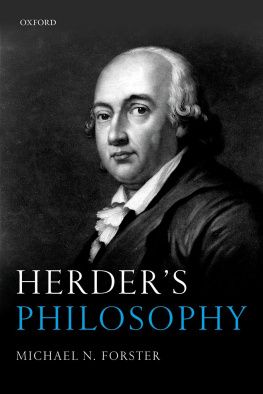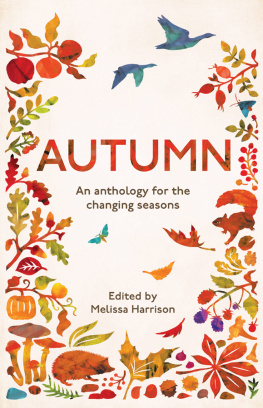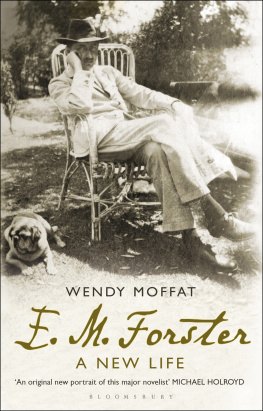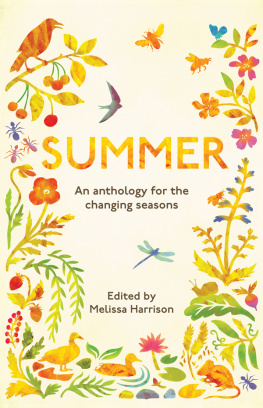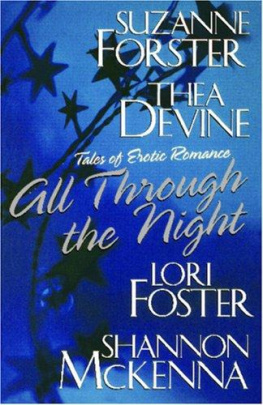Edward Forster - The Machine Stops
Here you can read online Edward Forster - The Machine Stops full text of the book (entire story) in english for free. Download pdf and epub, get meaning, cover and reviews about this ebook. year: 1909, genre: Science fiction. Description of the work, (preface) as well as reviews are available. Best literature library LitArk.com created for fans of good reading and offers a wide selection of genres:
Romance novel
Science fiction
Adventure
Detective
Science
History
Home and family
Prose
Art
Politics
Computer
Non-fiction
Religion
Business
Children
Humor
Choose a favorite category and find really read worthwhile books. Enjoy immersion in the world of imagination, feel the emotions of the characters or learn something new for yourself, make an fascinating discovery.

- Book:The Machine Stops
- Author:
- Genre:
- Year:1909
- Rating:3 / 5
- Favourites:Add to favourites
- Your mark:
- 60
- 1
- 2
- 3
- 4
- 5
The Machine Stops: summary, description and annotation
We offer to read an annotation, description, summary or preface (depends on what the author of the book "The Machine Stops" wrote himself). If you haven't found the necessary information about the book — write in the comments, we will try to find it.
The Machine Stops — read online for free the complete book (whole text) full work
Below is the text of the book, divided by pages. System saving the place of the last page read, allows you to conveniently read the book "The Machine Stops" online for free, without having to search again every time where you left off. Put a bookmark, and you can go to the page where you finished reading at any time.
Font size:
Interval:
Bookmark:
The Machine Stops
by E. M. Forster
Part I
THE AIR-SHIP
Imagine, if you can, a small room, hexagonal in shape, like the cell of a bee. It is lighted neither by window nor by lamp, yet it is filled with a soft radiance. There are no apertures for ventilation, yet the air is fresh. There are no musical instruments, and yet, at the moment that my meditation opens, this room is throbbing with melodious sounds. An arm-chair is in the centre, by its side a reading-deskthat is all the furniture. And in the arm-chair there sits a swaddled lump of flesha woman, about five feet high, with a face as white as a fungus. It is to her that the little room belongs.
An electric bell rang.
The woman touched a switch and the music was silent.
I suppose I must see who it is, she thought, and set her chair in motion. The chair, like the music, was worked by machinery, and it rolled her to the other side of the room, where the bell still rang importunately.
Who is it? she called. Her voice was irritable, for she had been interrupted often since the music began. She knew several thousand people; in certain directions human intercourse had advanced enormously.
But when she listened into the receiver, her white face wrinkled into smiles, and she said:
Very well. Let us talk, I will isolate myself. I do not expect anything important will happen for the next five minutesfor I can give you fully five minutes, Kuno. Then I must deliver my lecture on Music during the Australian Period.
She touched the isolation knob, so that no one else could speak to her. Then she touched the lighting apparatus, and the little room was plunged into darkness.
Be quick! she called, her irritation returning. Be quick, Kuno; here I am in the dark wasting my time.
But it was fully fifteen seconds before the round plate that she held in her hands began to glow. A faint blue light shot across it, darkening to purple, and presently she could see the image of her son, who lived on the other side of the earth, and he could see her.
Kuno, how slow you are.
He smiled gravely.
I really believe you enjoy dawdling.
I have called you before, Mother, but you were always busy or isolated. I have something particular to say.
What is it, dearest boy? Be quick. Why could you not send it by pneumatic post?
Because I prefer saying such a thing. I want
Well?
I want you to come and see me.
Vashti watched his face in the blue plate.
But I can see you! she exclaimed. What more do you want?
I want to see you not through the Machine, said Kuno. I want to speak to you not through the wearisome Machine.
Oh, hush! said his mother, vaguely shocked. You mustnt say anything against the Machine.
Why not?
One mustnt.
You talk as if a god had made the Machine, cried the other. I believe that you pray to it when you are unhappy. Men made it, do not forget that. Great men, but men. The Machine is much, but it is not everything. I see something like you in this plate, but I do not see you. I hear something like you through this telephone, but I do not hear you. That is why I want you to come. Come and stop with me. Pay me a visit, so that we can meet face to face, and talk about the hopes that are in my mind.
She replied that she could scarcely spare the time for a visit.
The air-ship barely takes two days to fly between me and you.
I dislike air-ships.
Why?
I dislike seeing the horrible brown earth, and the sea, and the stars when it is dark. I get no ideas in an air-ship.
I do not get them anywhere else.
What kind of ideas can the air give you?
He paused for an instant.
Do you not know four big stars that form an oblong, and three stars close together in the middle of the oblong, and hanging from these stars, three other stars?
No, I do not. I dislike the stars. But did they give you an idea? How interesting; tell me.
I had an idea that they were like a man.
I do not understand.
The four big stars are the mans shoulders and his knees. The three stars in the middle are like the belts that men wore once, and the three stars hanging are like a sword.
A sword?
Men carried swords about with them, to kill animals and other men.
It does not strike me as a very good idea, but it is certainly original. When did it come to you first?
In the air-ship He broke off, and she fancied that he looked sad. She could not be sure, for the Machine did not transmit nuances of expression. It only gave a general idea of peoplean idea that was good enough for all practical purposes, Vashti thought. The imponderable bloom, declared by a discredited philosophy to be the actual essence of intercourse, was rightly ignored by the Machine, just as the imponderable bloom of the grape was ignored by the manufacturers of artificial fruit. Something good enough had long since been accepted by our race.
The truth is, he continued, that I want to see these stars again. They are curious stars. I want to see them not from the air-ship, but from the surface of the earth, as our ancestors did, thousands of years ago. I want to visit the surface of the earth.
She was shocked again.
Mother, you must come, if only to explain to me what is the harm of visiting the surface of the earth.
No harm, she replied, controlling herself. But no advantage. The surface of the earth is only dust and mud, no life remains on it, and you would need a respirator, or the cold of the outer air would kill you. One dies immediately in the outer air.
I know; of course I shall take all precautions.
And besides
Well?
She considered, and chose her words with care. Her son had a queer temper, and she wished to dissuade him from the expedition.
It is contrary to the spirit of the age, she asserted.
Do you mean by that, contrary to the Machine?
In a sense, but
His image in the blue plate faded.
Kuno!
He had isolated himself.
For a moment Vashti felt lonely.
Then she generated the light, and the sight of her room, flooded with radiance and studded with electric buttons, revived her. There were buttons and switches everywherebuttons to call for food, for music, for clothing. There was the hot-bath button, by pressure of which a basin of (imitation) marble rose out of the floor, filled to the brim with a warm deodorised liquid. There was the cold-bath button. There was the button that produced literature. And there were of course the buttons by which she communicated with her friends. The room, though it contained nothing, was in touch with all that she cared for in the world.
Vashtis next move was to turn off the isolation-switch, and all the accumulations of the last three minutes burst upon her. The room was filled with the noise of bells, and speaking-tubes. What was the new food like? Could she recommend it? Had she had any ideas lately? Might one tell her ones own ideas? Would she make an engagement to visit the public nurseries at an early date?say this day month.
To most of these questions she replied with irritationa growing quality in that accelerated age. She said that the new food was horrible. That she could not visit the public nurseries through press of engagements. That she had no ideas of her own but had just been told onethat four stars and three in the middle were like a man: she doubted there was much in it. Then she switched off her correspondents, for it was time to deliver her lecture on Australian music.
The clumsy system of public gatherings had been long since abandoned; neither Vashti nor her audience stirred from their rooms. Seated in her arm-chair she spoke, while they in their arm-chairs heard her, fairly well, and saw her, fairly well. She opened with a humorous account of music in the pre-Mongolian epoch, and went on to describe the great outburst of song that followed the Chinese conquest. Remote and primaeval as were the methods of I-San-So and the Brisbane school, she yet felt (she said) that study of them might repay the musician of today: they had freshness; they had, above all, ideas.
Font size:
Interval:
Bookmark:
Similar books «The Machine Stops»
Look at similar books to The Machine Stops. We have selected literature similar in name and meaning in the hope of providing readers with more options to find new, interesting, not yet read works.
Discussion, reviews of the book The Machine Stops and just readers' own opinions. Leave your comments, write what you think about the work, its meaning or the main characters. Specify what exactly you liked and what you didn't like, and why you think so.

